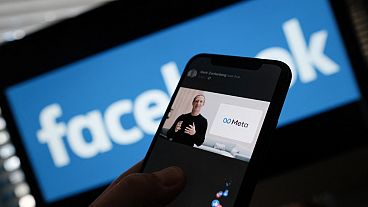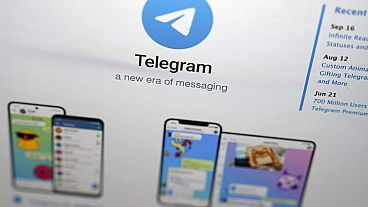Celebrities such as Kim Kardashian have been the victim of doxxing, the public release of information that identifies an individual or organisation.
Facebook and Instagram’s parent company Meta should not allow users to share private residential information and online images even when the data is in the public sphere, the company's oversight board said in its first policy advisory opinion on Tuesday.
The Oversight Board, which includes lawyers, human rights activists and academics, was created by Meta in 2020 as an independent body to advise on policies to help the company answer some of the more difficult questions around freedom of expression.
The board made 17 suggestions on how Meta could improve its policies to prevent individuals’ private residential information from being posted on its platforms with malicious intent, a practice known as “doxxing”.
Doxxing is the public release of information that identifies an individual or organisation, for example, a phone number or address. Such information released publically can lead to harassment or stalking.
Victims of doxxing include celebrities such as JK Rowling, Kim Kardashian and Lady Gaga, but also the general public, journalists and abortion providers. The release of such sensitive data has raised issues around privacy, civic activism and public interest.
“The malicious sharing of private residential addresses on social media is a serious problem that can lead to real-world harms including stalking and harassment,” said Oversight Board Director Thomas Hughes.
“The Oversight Board has made detailed recommendations to Meta that aim to protect anyone at risk of such attacks while defending freedom of expression. This guidance is about protecting privacy and ultimately making Meta’s platforms safer for people”.
Meta’s rules currently say users should not share "personally identifiable information about yourself or others". However, the company says it can allow content like a person's address to be posted if it is considered "publicly available".
What has the Board recommended?
Some of the recommendations to prevent doxxing include:
- Removing the exception that allows the sharing of private residential information when considered “publicly available”.
2. Creating a specific communications channel for victims of doxing, which Meta responds to swiftly, and is available to people on and off of Meta’s platforms.
3. Consider violations of its Privacy Violations policy as “severe”, immediately suspending user accounts where the sharing of private residential information is clearly related to malicious action that creates a risk of violence or harassment.
It is the first time Meta has requested a policy advisory opinion from the Board that was not related to a specific case.
“We will continue to engage closely with Meta on these critical issues of public safety,” said Hughes.
The oversight board has previously ruled on cases such as the suspension of former US President Donald Trump.
"We welcome the Oversight Board’s decision today on this policy advisory opinion referral," Meta said.
"After conducting a review of the recommendations provided by the board, we will update this post".
Meta now has 60 days to review and publically respond to the board’s recommendations.



